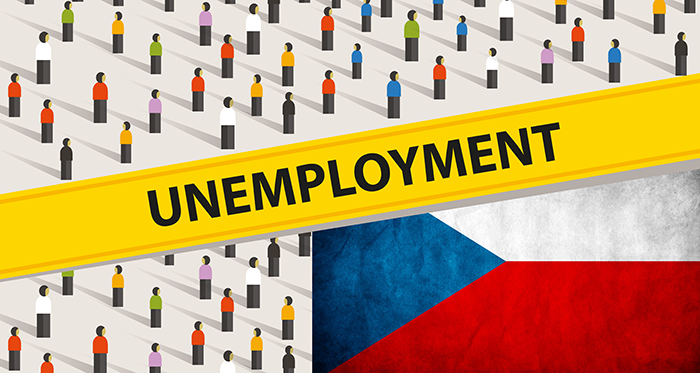Czech labour market cooling contributes to rising unemployment in January
The increase in Czech unemployment to 4.3% in January was not only driven by the usual seasonal decline in temporary jobs but also reflects a broader cooling of the labour market, according to analysts surveyed by the Czech News Agency.
“January typically sees an uptick in unemployment, which was confirmed again this year,” said Martin Jánský, CEO of Randstad Czech Republic. Employers traditionally terminate seasonal contracts and short-term agreements at the start of the year, temporarily increasing the number of job seekers. However, this year, announced layoffs across various sectors have also contributed to the rising jobless rate. Given the current economic conditions in the Czech Republic and Germany, Jánský expects unemployment to continue rising slightly in the coming months.
Companies Reducing Workforce Expansion
Surveys indicate that while many companies do not plan to significantly reduce staff, they are also hesitant to replace departing employees. “This points to workforce and cost optimization,” Jánský noted.
Trinity Bank’s chief economist Lukáš Kovanda highlighted that, aside from the pandemic period, the Czech unemployment rate is now at its highest level since 2017. “The last time we saw 4.3% unemployment was in early 2021, largely due to the Covid crisis,” he said. Kovanda predicts that unemployment may fall to 4% by mid-year, before rising again slightly during the summer holiday period. Despite this, the Czech Republic still maintains one of the lowest unemployment rates in the EU, although signs of labour market cooling persist.
Industrial Slowdown Adding Pressure
According to Kovanda, the Czech labour market has been overheated for years and is now experiencing a correction due to declining industrial performance. “Manufacturers are struggling with high energy costs and weak demand, particularly in Germany. The threat of global trade wars and potential tariffs is adding uncertainty, discouraging new investments and negatively impacting Czech industry and employment,” he explained.
Normalization, Not Panic
ČSOB analyst Dominik Rusinko pointed to weak economic growth and a two-year decline in industrial production as key reasons for the labour market slowdown. However, he reassured that the Czech Republic remains among Europe’s leaders in low unemployment. “The current increase is more of a normalization, not a cause for alarm,” he stated.
That said, Rusinko warned that accumulating risks, such as industrial uncertainty and potential tariff hikes, pose challenges for the coming months. Instead of falling as in previous years, unemployment may remain around current levels for some time.
As economic conditions continue to fluctuate, analysts and businesses alike will be closely monitoring developments in the Czech labour market in the months ahead.
Source: CTK









